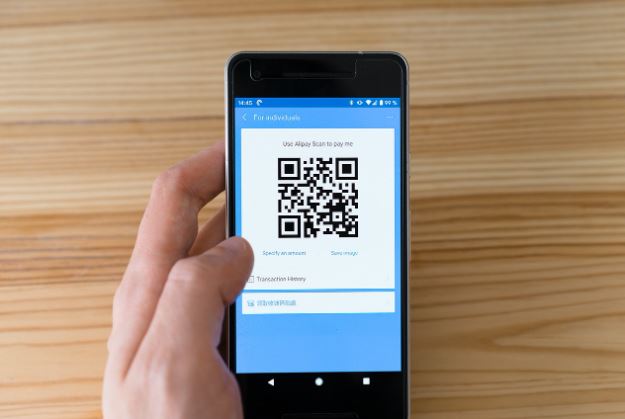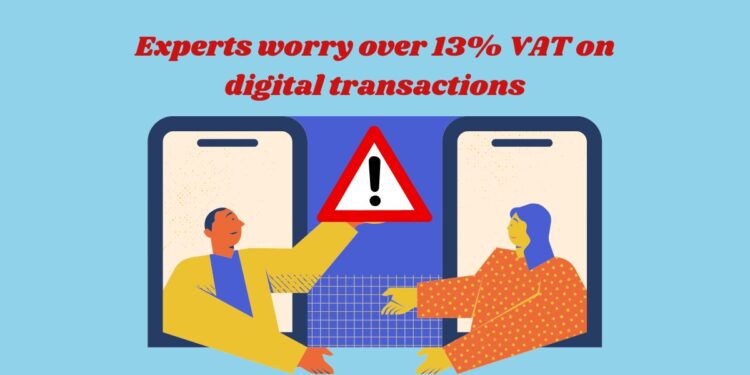Experts have voiced their concerns about the possible effects of 13 percent VAT on digital transactions. The implementation of it is likely to get continuity on digital transactions after the Supreme Court dismissed a writ to overturn this decision. This marks a significant blow to the digital Nepal aspirations and goals the industry has set. It goes without saying that the imposition of VAT has garnered much rebuke and criticism, and against the anticipation of many, the SC also couldn’t make a decision to please the worrying parties.
Supreme Court’s dismissal of the writ is seen as a major setback to the country’s digital journey. The government of Nepal implemented the 13% VAT on digital payments as per the Financial Act in FY 2081/82.
The move comes against all the odds and seems self-contradictory to the government’s own methods of promoting electronic payments. What’s so telling is that users will need to pay Rs 11.30 on fund transfer even if the transfer amount is Rs 1.
The government has projected the ICT industry as a key area for investment and growth and we noticed some rather ambitious plans for it too in the budget FY 2081/82. However, the anti-current 13 percent VAT electronic transactions serve as a killer blow to the country’s digital economy.
Highly recommended: PayPal is launching in Nepal!
Inflation to rise!
Industry experts and stakeholders have remarked that the 13 percent VAT on online transactions could result in inflation. Based on this projection, service providers had filed a writ at the Supreme Court. But on Tuesday, December 24, a joint bench of Justices Til Prasad Shrestha and Tek Prasad Dhungana upheld the government’s decision and dismissed the writ petition.
The 13% VAT on digital transactions risks users reverting back to previous methods of cash payment

The experts claim that the government’s decision is likely to strike a big dent in realizing digital Nepal goals with digital transactions. The VAT enforcement discourages people from paying Rs 11.30 for each transaction.
There’s also a risk of people moving away from mobile banking, digital wallets, QR codes, online shopping, etc. The whole ecosystem is built on online payment, and the decision to slap the VAT could prove hugely ill-advised. This could lead to a scene where customers again go back to cash payment, which also involves revenue drops and lessening transparency in the national economy.
Merchants’ distress
Small and medium enterprises (SMEs) are some of the most affected classes. As digital payment becomes costlier with the 13% VAT, the businesses will feel obligated to trickle down that liability to the customers. This means online transactions will be less popular among low-income people.
Also, alarming is that it could dampen the flourishing online shopping sites these days. Online payment has brought transformative change to the people, however, the rule that forces them to pay extra in VAT could dissuade them from paying over the Internet. If it affects online shopping, it will also adversely affect the economy, merchants, and employment.
An impediment to the digital economy
Experts have commonly shared that the 13% VAT on digital transactions is the opposite road the government has taken. They believe that it doesn’t promote innovation and digital transformation goals. After the VAT imposition, the payment operators have also raised their service fees. Likewise, SMEs who started to shift to online payment methods are now greatly discouraged and there’s a risk of them going back to the traditional way of cash payments.

the decision has likewise, drawn a strong rebuke from economists and digital technology experts who warned that it could adversely affect digital Nepal goals and inflict a harrowing impact on the national economy.
They voiced the concern that the VAT imposition on digital payments led to the loss of trust of citizens in the government and impacted revenue collection.
Check out mobile banking and digital wallet transaction limit
The government defends the move
The government has defended its decision arguing that the VAT of 13% will strengthen the economy and increase revenue generation. Experts though maintain that it will hurt the economy in the long run.
The Supreme Court’s decision to uphold the 13% VAT on digital transactions has frustrated consumers, experts, and SMEs. However, the concerns seem to have fallen on dead years, or let’s say that the government is confident in its positive outcomes.
What do you think of it though? Are you fine with paying 13% VAT on online payments or want the government to reverse this unpopular decision? Do share in our comment section below












